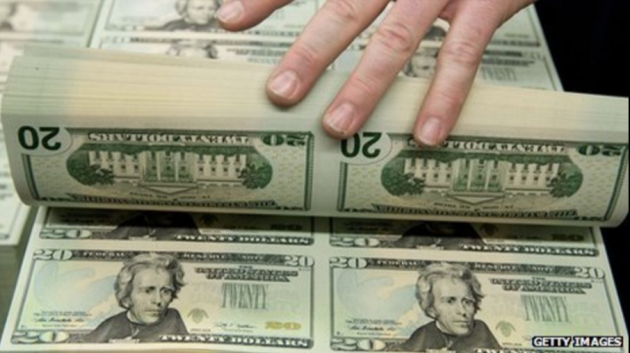In an editorial, Dr. Todd J. Barry, who has taught economics at Hudson County Community College, discusses the impact of a potential U.S. default.

Within a month, President Joseph Biden, and Congress, must agree to raise the debt-ceiling, to incrementally sell bonds to pay for bills already passed, or else default. The “debt-ceiling rule” dates to World War II, when the debt was enormous.
This rule has regained contention over the past several decades, after yearly deficits and accumulated debt rose in the Reagan administration, and then multiplied under President George W. Bush. Many nations have, historically, defaulted on their debts.
The United States (U.S.), while having changed its monetary-system often, technically never has, which is one argument for American exceptionalism, the optimism in America’s democratic future.
Defaults are worse than “government shutdowns,” when Congress fails to pass enough spending. “Shutdowns” date to a Carter administration ruling, and cause temporary suspensions of government services.
President Biden desires a “clean debt-ceiling bill,” with no accompanying debt reduction – the rule’s original intent.
If this is his position, then the debate should be about the rule itself. Congress could have eliminated the rule previously, had Mr. Biden specified his views.
Treasury Secretary Janet Yellen estimates June 1 as when resources will deplete. Senator Cory Booker-(D-NJ) has said to Republicans, “put up, or shut up” (MSNBC), while Senators like Finance Committee member Robert Menendez-(D-NJ) might soften the President’s stance. Some in Congress have already derided the debt-ceiling process.
House Speaker Kevin McCarthy-(R-CA) seems to sense a mandate; despite passing the House bill, party cohesion will be important.
Although some Congressional “nihilists” are doubtful, a default would cause massive “runs” on bonds by U.S. and international businesses.
This would shatter bond prices, and skyrocket interest rates. Credit ratings would be downgraded- making future bond sales more difficult. Also, during the 2011 and 2013 crises, the stock markets seesawed two weeks before the deadline.
Fortunately, in 2011, a debt-reduction deal was reached. In 2013, in this game of “chicken,” House Speaker John Boehner “gave in,” for the overall good.
Compared to California’s recent bank “run,” a federal default would be catastrophic, especially since, in 2018, Congress lessened “stress-tests” on banks.
Similarly, the Federal Reserve cut the bank required reserve ratio to 0% in 2020, still unchanged today, presumably as a Covid-19-Era stimulus, yet worsening inflation.
Estimates show some 40,000 financial employees working in Hudson County, and 400,000 total workers from New Jersey commuting to NYC, our nation’s “financial capital.”
The Republicans call for: capping spending at 2022-levels, strengthening Medicaid work requirements, rolling back the “Build Back Better” anti-inflationary, environmental bill, and stopping student-loan forgiveness.
While reducing debt, why undo policies so recently passed? Meanwhile, President Biden, who is reluctant to negotiate, supports tax increases, which failed even when Democrats controlled Congress, and claims his use of COVID-19 funds elsewhere was “deficit-reducing.” Speaker McCarthy, meanwhile, seeks further COVID-19 cuts.
Some of the planning, more presciently, should consider the Trump-Era tax cuts, which expire post-2025.
Absent of compromises, several last-minute, yet legally-debatable options, exist. President Biden could order the Treasury to mint trillion-dollar coins, for the Federal Reserve to spend. Or, more simply, he could “monetize” the government’s gold, which President Dwight D. Eisenhower did in 1953-1954.
Either action, however, by adding money to the economy, would double already high inflation rates. If Congress indeed defaults, then, after NYC’s markets teeter, Congress could revisit the issue, as during the 2008 financial crisis, or extend the deadline.
Gone are the days when America was powerful enough to bail out other countries, like Mexico in 1995.
Instead, long-term, with America’s $32 trillion dollar debt, then help from wealthy countries like Germany (which aided Greece in the 2010s), international institutions, or even Asia, might be needed. If not, U.S. spending programs could be jeopardized.
Interestingly, a new bi-partisan idea considers combining sovereign wealth funds- for Social Security, with higher payroll taxes on wealthier workers.
A long-term U.S. bailout would be internationally humiliating; the lender would mandate overall higher taxes. Nevertheless, the short-term risks of default exceed the long-term risks of debt itself. With no deals pending, our leaders cannot see the bigger picture.
The best option would be to eliminate the debt-ceiling rule all-together, with debt increasing automatically. Then, without this unintended game of “hostage,” both parties could work on a reasonable, long-term agreement.








